
Easing Drug Laws the Answer to the Nation’s Drug, Prison Problem – Or Precursor to More Crime?
|
Many drug laws have punishment lengths that do not fit the crime, some experts are saying.
Juvenile Justice Information Exchange (https://jjie.org/series/1-priority/page/33/)

Many drug laws have punishment lengths that do not fit the crime, some experts are saying.
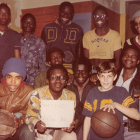
The television premiere for Remember Me Sue, a documentary film about one woman’s 50-year dedication to an after-school center on Chicago’s South Side, is set to be aired on PBS Chicago at 9 p.m. Thursday. In the midst of the civil rights movement in 1961, Sue Duncan founded the Sue Duncan Children’s Center and became a mother figure to the many African American youth for whom the center cared.
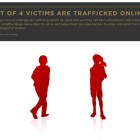
Males remain a largely invisible population within the dialogue on sex trafficking.
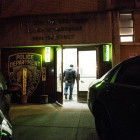
NEW YORK — Tears and emptiness marked Tuesday's conviction in the murder of promising basketball star Tayshana Murphy, an 18-year-old girl gunned down early on the morning of Sept. 11, 2011 in the squalid fourth floor of her apartment building in the Grant Houses.

Young LGBTQ residents tell stories of New Orleans' darker side that affects their lives.

Juvenile justice advocates' fight to transform Connecticut from one of the only three states in the nation to prosecute 16-year-olds as adults to one of the leaders in juvenile justice reform wasn’t easy, but advocates say it provides a model for the two states left — North Carolina and New York — as they navigate if, and how, to make the change.
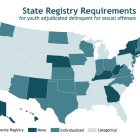
There is very little flexibility when it comes to determining who must register as a sex offender.

LOS ANGELES — Antonio was only 14 years old when he was charged with two counts of attempted murder in April 2012. Because of his age and the fact that he had no prior record and because there were strong indications that he didn’t know his much older co-defendant was going to shoot anyone, he seemed to be a strong candidate to be tried in juvenile court. Inexplicably, his appointed lawyer failed to vigorously fight to have Antonio tried as a juvenile, failed to call witnesses or ask questions at a probable cause hearing where Antonio’s lesser culpability could have been argued and failed to ensure that Antonio’s probation report was accurate and complete, according to interviews and court records. As a result of this litany of legal missteps, Antonio’s case was sent to adult court — where he suddenly was facing 90 years in prison if convicted. Such problems are far from unique.
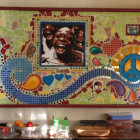
CHICAGO — Tuesday afternoons around lunchtime, Precious Blood Ministry in Chicago’s Back of the Yards neighborhood opens for a group of mothers chatting up to the door, balancing home-made lasagna and chocolate chip cookies. They come from the West and South Sides of Chicago, and they’re good friends despite their circumstances for coming together, which isn’t just to discuss the polar vortex over sloppy joes. The group’s leader is a redheaded real estate agent named Julie Anderson, whose brawling voice precedes a plain-spoken personality highlighted by intermittent, self-deprecating quips at the expense of her own Catholic idiosyncrasies. Others include mother-daughter pairs and grandmothers who make the trek down to Precious Blood every week alone. One woman carries a petition along with a photo of her son everywhere she goes.

CHICAGO — In 2004, 21-year-old David Koschman lost his life in a drunken confrontation. Nearly 10 years later, his killer has only begun to face judicial consequences for the crime. For seven years, Koschman’s case remained an unsolved homicide, despite several witnesses identifying Richard “R.J.” Vanecko as the assaulter who punched Koschman in the face after a long night of drinking, causing Koschman to fall backward and hit his head on the street. Koschman died 12 days later but the assaulter was never charged. A 2011 Chicago Sun-Times investigation led to the eventual indictment of Vanecko, nephew of former Chicago Mayor Richard M. Daley, in 2012.